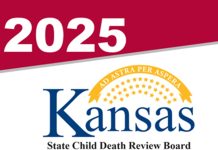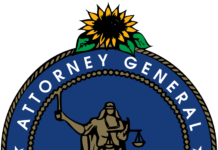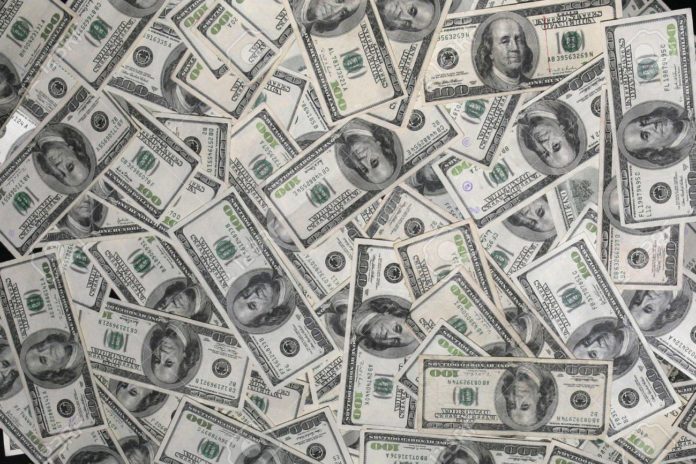(Updated to reflect comments from Kansas Chamber, Kansas Action for Children, Kansas House speaker)
State revenue forecasters predicted sunny financial times ahead, boosting revenue estimates by more than a half-billion dollars for 2020 and 2021.
New consensus revenue estimates released late Thursday showed the state bringing in an extra $525.5 million for the current fiscal year and next.
“We are experiencing and should continue experiencing steady growth,” said state Budget Director Larry Campbell.
“I have moved from a perfect storm of uncertainty to cautiously optimistic,” he said.
Democratic Gov. Laura Kelly embraced the new numbers, foreshadowing that they will give the state latitude to put more money into taxpayer services.
The new estimates “will allow us to reinvest in important priorities such as our infrastructure and our schools, and give us the ability to expand Medicaid while exploring common sense tax reform options,” Kelly said in a statement.
However, the rosy new numbers are likely to renew a debate this upcoming session over whether the state should return extra revenue it was anticipated to receive because of the federal tax cuts in 2017.
“Kansas, like other states, is experiencing a strong economy. Large receipts shouldn’t mean more dollars to grow government,” Senate President Susan Wagle said shortly after the new estimates were released.
“We must pass the Trump tax cuts onto Kansans, lower the sales tax on food, and allow Kansans to itemize their mortgage interest and property taxes. There are no excuses for not passing the additional funds back to the taxpayer.”

Kelly’s budget director, however, urged caution about the new numbers, noting that the state is still spending more than it’s taking in.
The state, he said, also has other needs. The governor wants to expand Medicaid, plus there are demands in corrections and children’s welfare, among others.
“There’s great need in every single agency,” Campbell told reporters. “I hear that all the time. There’s real need.”
Fiscal analysts said that some of the revenue increases reflect $60 million collected from Kansas taxpayers who were not able to itemize on their state return because they didn’t itemize on their federal return.
Tax bills considered last session would have changed state law so taxpayers could itemize on their state return even if they didn’t itemize on the federal form.
The Trump tax cuts discouraged taxpayers from itemizing by offering lucrative federal standard deductions that were more valuable than the state’s standard deduction.
Kelly vetoed the tax bills that would have returned the so-called revenue windfall that was anticipated to come with federal tax reform, including a provision changing the law for itemizing.
She vetoed one bill that would have given up about $240 million over three years and another that would have cost more than $500 million over the same period.
Kelly urged caution on racing to give up that revenue after years of financial uncertainty created by the tax cuts enacted by former Gov. Sam Brownback.
She created a special panel that is now examining state tax policy, but a final recommendation is not due until December 2020 after next year’s elections.
Alan Cobb, chief executive of the Kansas Chamber of Commerce, said the revenue numbers are indicative of what the organization warned if the Legislature failed to pass the tax bills – “an unintended tax increase on Kansas families and businesses.”
“We hope they recognize the mistake they made and act to lower the tax burden on Kansans from this unexpected and unnecessary tax increase,” he said.
John Wilson, president of Kansas Action for Children, said the revenue numbers reinforce the Legislature’s decision in 2017 to reverse most of the Brownback tax cuts.
“If we continue to responsibly manage taxpayers’ dollars, we can keep making critical investments in the health, education and well-being of Kansans,” he said.
It was unclear just how the new revenue numbers would affect the out years of the state financial picture.
Financial analysts are just starting to develop a new five-year budget profile based on the numbers released Thursday.
Nevertheless, House Speaker Ron Ryckman Jr. criticized the governor for spending policies that could leave holes in the state budget.
“Today’s news is a sign that our economy is strong, and that strength is due in large part to national tax policy which has put more money in taxpayers’ pockets,” Ryckman said.
“Unfortunately here in Kansas, the governor’s plans continue to have Kansas spending more than we have. Her policies are unsustainable and leave Kansans increasingly vulnerable when there is an economic downturn.”













